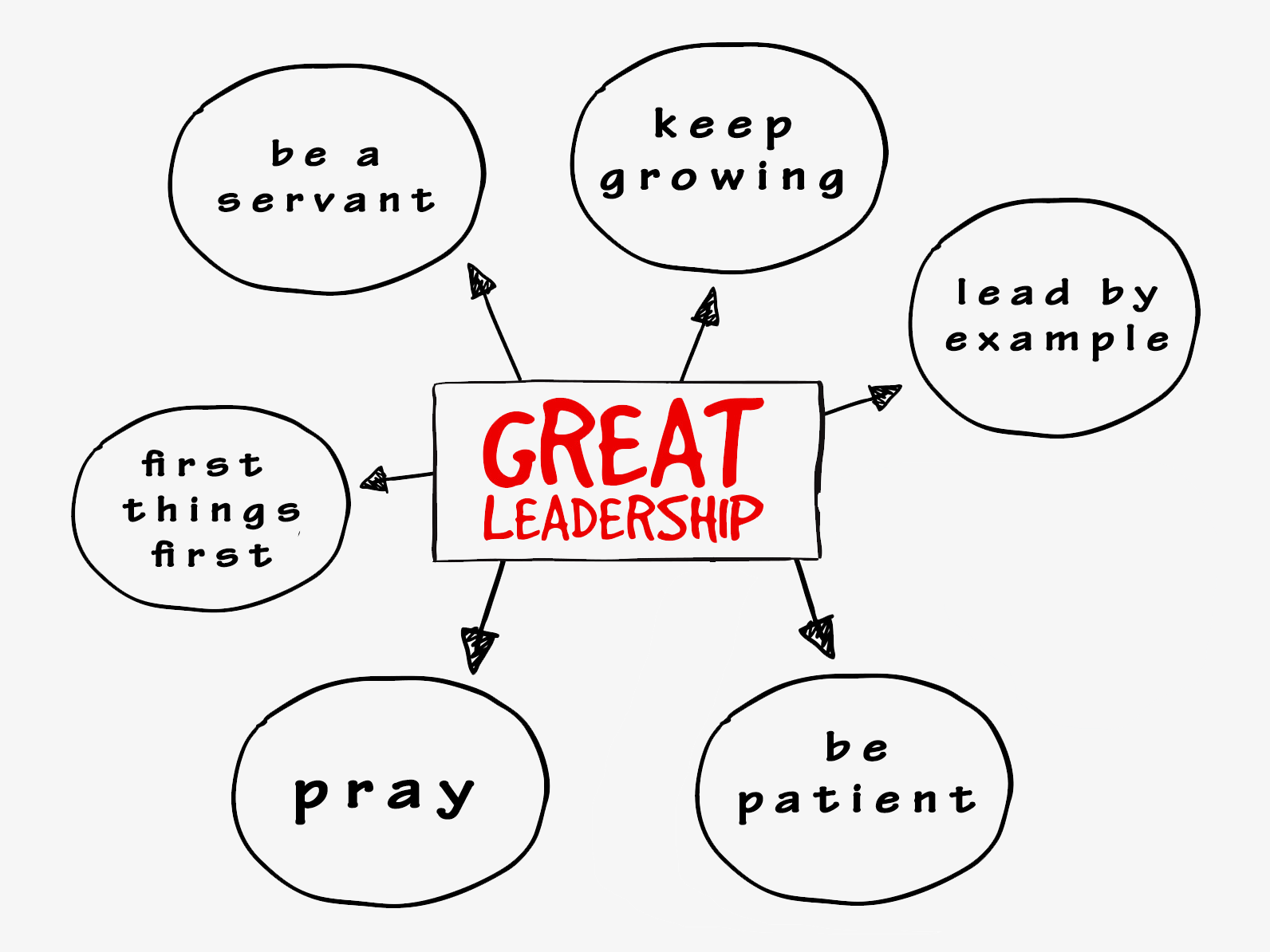As leaders, we influence others to further a particular mission. Our influence may arise from our position or personality. Either way, this definition of leadership makes nearly everyone a leader, including you.
You heard me right homemaker, wife, husband, mechanic, or secretary. You too are a leader because you have influence with others. You may not have lots of people following you but you’re still a leader.
On the other hand, you may have lots of followers or have a powerful position in your work. Either way, not every leader is a great leader. Some leaders use their influence to accomplish dishonorable purposes. Other leaders have honorable intentions but are ineffective. Hence, a great leader is both efficient and honorable. Below are a few suggestions that can assist any leader in becoming great.
Characteristic 1: Keep life in perspective.
Leaders must prioritize. We cannot allow the demands of our churches, businesses or organizations to supplant the weightier matters of life such as faith, family, health, reputation and so on. Our lives, as well as our leadership, will suffer if we neglect these more important areas. Also, it does not profit any leader to gain the world and lose his soul either eternally, emotionally, mentally or otherwise.
Characteristic 2: Become the chief servant.
The greatest leader ever washed the feet of his leadership team so they would have a clear example of a chief servant. Accordingly, great leaders reject narcissism by having the heart of a servant. They don’t sit in their ivory towers and plush offices while their followers make things happen. This attitude kills morale and breeds a culture of narcissism. Customer service or satisfaction takes a back seat when narcissism abounds rather than a servant spirit, causing growth and productivity to become stagnate. To avoid these outcomes, great leaders wisely see themselves as humble servants.
Characteristic 3: Continue to grow.
We cannot be great leaders if we stop growing. The reason for this is simple? If leaders stop growing, their leadership teams stop growing. If their leadership teams stop growing, their organizations stop growing. So, a lack of growth at the top trickles down and infects the entire organism. For this reason, great leaders are always learning from others and improving themselves. They attend conferences, seminars, workshops and so forth to learn. They remain committed to learning and growing because they recognize there’s always more to learn, read, master, and so forth. They recognize that readers are leaders.
Characteristic 4: Lead by example.
Great leaders never ask more of others than they are willing to give. Their selfless example motivates their followers to put their whole hearts into accomplishing the goals and mission of the group. It creates a culture of valiance and sets high standards of achievement without corporate dogma. As such, great leaders are the first to arrive and last to leave. Jesus is the best illustration of leading by example. His sacrificial death is the ultimate example of a leader showing His followers the type of commitment that’s needed to follow God.
Characteristic 5: Pray before picking leaders.
Great leaders cannot win without great leadership teams. This fact makes building great leadership teams very critical. Hence, great leaders don’t select their team members without the highest level of judiciousness and circumspection. More specifically, great leaders pray before selecting their team members. They are wise enough not to trust these critical decisions merely to their personal judgment. They recognize that only the Lord knows the heart of people and knowing the heart of their team members is necessary before putting them on the team.
Characteristic 6: Allow room for mistakes.
Humans make mistakes. Period. It’s inevitable. In some cases, mistakes are the only way to learn certain things. Trial and error helped great inventors make the automobile, plane, computer and other life-changing inventions. Great leaders, therefore, must create environments where people are not afraid to think outside the box and make mistakes. They cannot allow legalistic environments to stifle the flow and grow of new ideas, which are the life-blood of churches, businesses and organizations. Great leaders understand that new ideas are messy and rarely neatly packaged; and they come forth only in fertile conditions that foster growth and forward thinking.
Question: What other characteristics would you include in this list?



Comments are closed.